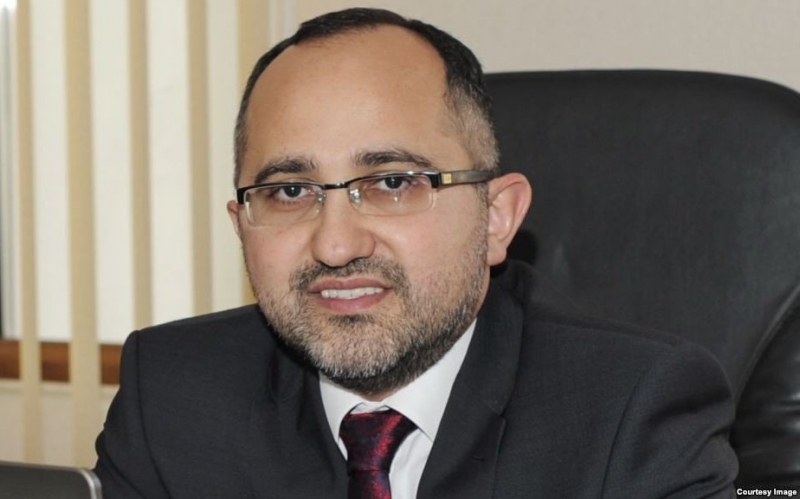
Photograph by Dennis Hallinan / Alamy
Since the beginning of the year, there has been a decline in demand for dollars. For the first time in recent years, at the next currency auction held on January 24 at the Central Bank of Azerbaijan, the banks had no orders and they did not buy dollars. At the auction held on January 19, the demand was only $1.5 million. At the first auction of the year, held on January 5, $52.7 million was sold, and at subsequent auctions, demand declined.
At six auctions in January, a total of $159.1 million was sold, which is also about four times less than in the same period last year. In January 2022, $642.7 million was bought at auctions. Recall that since 2017, $1 has been sold for 1 manat 70 qepiks. What is the reason for the fall in demand for dollars?
Financial expert Akram Hasanov answers ASTNA questions.
* * *
Question: Since the beginning of the year, there has been a decline in demand for dollars. What is the reason?
 Answer: There are both objective and subjective factors. Objective factors are associated with a decline in economic activity in general. Incomes are down, spending is up. The dollar is basically a savings currency for the population. If there is nothing to save, then dollars are not needed. As for business, the activities of entrepreneurs are gradually curtailed. Monopoly tendencies are on the rise. The number and turnover of real private entrepreneurs, their operations with abroad is declining. Therefore, they need less dollars. And the bureaucratic, monopolistic business can receive dollars in various ways and we may not know anything about it.
Answer: There are both objective and subjective factors. Objective factors are associated with a decline in economic activity in general. Incomes are down, spending is up. The dollar is basically a savings currency for the population. If there is nothing to save, then dollars are not needed. As for business, the activities of entrepreneurs are gradually curtailed. Monopoly tendencies are on the rise. The number and turnover of real private entrepreneurs, their operations with abroad is declining. Therefore, they need less dollars. And the bureaucratic, monopolistic business can receive dollars in various ways and we may not know anything about it.
Subjective factors include administrative restrictions. For example, an unofficial and illegal limit of 20,000 manats applies to the population. That is, everyone can buy foreign currency in a year only within this limit. For those who buy more, the tax authority even charges tax.
Question: Doesn't this lead to the strengthening of the manat? Can the manat appreciate against the dollar?
Answer: Objectively, the manat can rise in price, that is, strengthen. According to open data, our foreign exchange reserves have grown due to consistently high oil prices. So, objectively, the manat can strengthen. But the government is unlikely to go for it. It will not spend foreign exchange reserves to increase the rate of the manat. In addition, this will have a negative impact on domestic production: the prices of our goods will increase for foreigners. With a 99% probability, we can assume that this year the manat exchange rate will remain stable. Unless something unusual happens abruptly on world markets.
Question: What causes the shortage of money supply in the market?
Answer: This is due to the Central Bank's fight against inflation. It increases the discount rate, that is, it gives banks more expensive loans. At the same time, the required reserve ratio of banks held by the Central Bank increased. That is, the Central Bank deliberately reduces the money supply in circulation in order to prevent price increases. But, of course, this also leads to a decrease in economic activity.
Question: Could this also be related to export-import operations?
Answer: Partly yes. But the main reason is the monetary policy of the Central Bank.
Question: What positive or negative processes can lead to a decrease in demand for dollars?
Answer: A real decrease in such demand means a decrease in economic activity. This means that economic development will not be fast either. But what is the decline in demand in reality, is also in question. Because with the Central Bank rate of 1.7, banks buy dollars from the population and entrepreneurs at a rate that is even higher than 1.69, that is, for about 1.7. If demand were to actually decline, then the exchange rate would have to be lower - at least 1.68. Why would a bank that does not buy dollars wholesale from the Central Bank at the rate of 1.7 buy dollars from the population at the same retail rate, spend time and labor on this? It is possible that banks do not participate in auctions in accordance with administrative regulations or participate with low demand. As well as in accordance with this kind of instruction, they apply the limit of 20,000 manats, which was mentioned above. Let me remind you that officially this limit is introduced not by the state, but supposedly by banks jointly. However, it is obvious that the limit is introduced by the state. First, if demand has gone down, why don't they lift the limit? On the other hand, how can we trust the banks that take responsibility for imposing this limit, if they do not participate in auctions, even administratively? I'm not saying that the country has currency problems. But it is possible that against the backdrop of geopolitical tensions, our state is very careful about the volume of foreign exchange reserves. In other words, it insures against problems that may arise in the future.













Leave a review